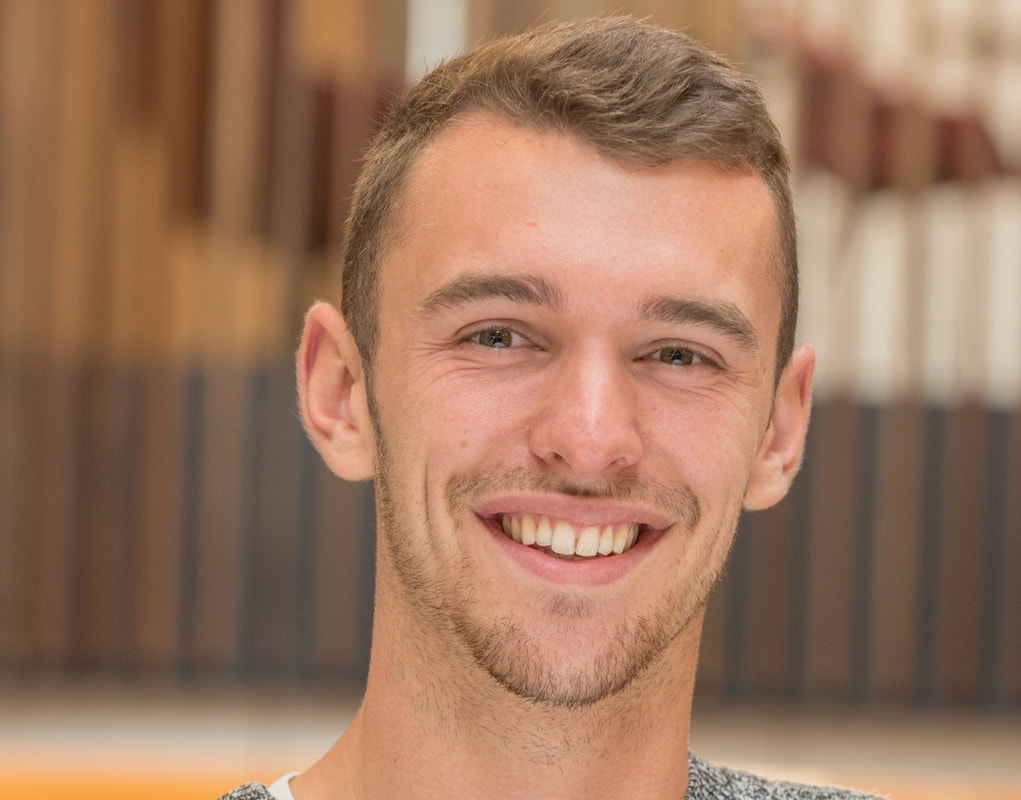Odd Voice Out
Rowan James Curtis Interview4/24/2020
The Syrian refugee crisis is a woefully underrepresented event, both in the media and in fiction. For ‘Piano Wire’, what research and inspiration did you undertake to create this very moving tale?
The inspiration for Piano Wire came from a moment which profoundly affected me emotionally. I was running an experiment in my lab whilst watching the BBC News reports of the battle of Aleppo in summer 2016. The reports from Syrian civilians who were caught in the middle of one of the bloodiest battles of recent history (which claimed over 30,000 lives) were devastating. The Professor I was working with came into the lab as I was watching a video call by a young girl trapped in Aleppo. It took me a few moments to compose myself before I could talk to him. From then on, I wanted the voices of the Syrian people to be heard in the west, but I was in no position to tell their story. Six months later, I met two Syrian students at the University of Surrey, who were both from Aleppo and who had come to the UK to study. It was only then, after listening to their own stories and memories of home, that I started to write. How long have you been writing, and is ‘Piano Wire’ part of your typical genre set? I’ve been writing for seven years now and I mainly write realistic fiction (although my first novel is an environmental fantasy adventure novel set on a coral reef and I’ve just finished a story about a talking dog). Most of my stories focus on real-world events and socio-economic injustices. The novel I’m currently working on is about dealing with loss, addiction, social immobility and class issues in the UK, and I often write stories which place my characters in vulnerable situations. These situations emphasise the human capacity to endure, find beauty in and even flourish in difficult circumstances. The first novel I wrote was essentially a self-help novel, with an environmental aspect to it and I believe mental health and climate change will be two of the most defining challenges my generation will face. I have confidence in the power of literature to educate readers about such issues, on personal and universal scales, but also as a medium for highlighting the beauty which is real and present within any situation, no matter how hopeless it may seem. The theme of musicians and the power of music is strong within this story. Can you tell us how that thematic choice came about? Music is a very big part of my life and all my stories have music and the arts as themes within them. But there are many reasons I use music within my stories. Firstly, for Piano Wire, I wanted people to see the Syrian war not just as a news story but as something which affected people who are just like them in appalling ways. What better way to plant the seeds of empathy and understanding in a story than a mutual appreciation of music between our characters and the reader? Secondly, I find you can learn a lot about any character by discovering what sort of music or art they might like, if any. When I start fleshing out a character, before writing, I always ask questions like, What would this person have for breakfast? What would they listen to on a Sunday morning, or on a day when someone close to them dies, or on the day a world war was over? What painting would they want to steal from the National Gallery, if they could? Would they like the work of a particular artist, musician or poet if someone introduced them to it? These sorts of questions help me to know a character before I write a word of their story. I feel music reflects the soul in a way that actions sometimes do not. I also find that showing what sort of music/art a person likes or dislikes is a very good way of teaching the reader something about a character in a ‘show the reader don’t tell them’ way. Thirdly, if we imagine a tune played by the right hand of a pianist, then whatever the left hand does changes the way we experience the tune of the right hand. Using this left-hand note as a backdrop, we can vary the feeling behind the right-hand tune from peace to tension, from joy to sadness. Now we can apply this notion to our writing. If we have a scene which ends with a character who is called to action, and we have our character hear the song ‘Here Comes the Sun’ by The Beatles on the radio, this will leave the reader with a totally different feeling to the same scene ending, than if they heard ‘Hello darkness my old friend’ from The Sound of Silence by Simon and Garfunkel. Thus, hearing and playing music is a useful way of providing motion, light and darkness in a story, and adding texture to it to make it feel multi-dimensional. What does a typical writing session look like for you? I go through periods of writing with the Graham Greene method, which is to try to write 500 words a day. But often, because I’m busy with planetary physics or music, I end up having mammoth writing sessions where I turn out ~8000 words in two to three days, whenever I have free time to do so. My favourite place to write is the Radcliffe Camera in Oxford, but I find myself writing pretty much anywhere there is silence. I’m one of these people who cannot write to music or anything else which may distract me, so I must be somewhere quiet. I also always write digitally, using my laptop, as I have all my ideas stored in a huge file called my ‘Mind Bible’ and prefer to be able to access my ideas using a search bar instead of trawling through hundreds of pieces of paper that I’ve spilled tea on. Oh, that’s another thing. Unless I’m in the Radcliffe Camera (no drinks allowed!), I almost always write with tea beside me. What inspired your decision to also include the perspective of an English teen in your story? This goes back to the idea of bridging the gap between the comfortable west (i.e. the boy in the UK) and the Syrian war. The Syrian People are not just numbers on a news story. They are real people with lives and loves just like the London teen watching the news. This is why I added the keyring to the story and is also why Rima ends up in London and the father of the house she arrives at is the surgeon of the English teen. These provide tangible connections between the characters. Liam’s almost banal experiences provide a Ying to Rima’s Yang within the story, and his chapter slows the pace before the ending, hopefully increasing the power of the last few paragraphs. ‘Piano Wire’ contains some beautifully penned but also quite stark and shocking images of real life war and conflict, which we don’t often see in YA fiction. Do you think it’s important that we should see more of this in future? As I mentioned earlier, it is important to portray the realities of situations, so we do not underreact to atrocities, or underappreciate good situations. Most of the young adults I know are very engaged in world events and have a strong sense of justice, which is sometimes diluted as our adult lives progress. Our world is theirs to inherit and I feel it is important for them to keep an eye on what’s happening in the ever-changing world. The news should report facts. But it is the job of writers and artists to engage young people in a longer lasting, emotional way, through fiction or other artistic devices. You have a Ted Talk on the importance of classical music. How do you bridge the gap between different artistic formats like music, public speaking and writing to get your message across? My messages are always consistent, no matter the form of communication. This is because day-to-day, I actively try to embody the things I believe in. This is part of who I am and is the root of all my creative endeavours. More practically, I try to use what I learn from different forms of expression, whether I’m doing public speaking, performing or writing, to help me improve in the others. When you consider the process of writing, it is author to page, page to reader. With music it is musician to instrument, instrument to listener. So, there is a barrier, or a medium which must be considered as part of the process. Both singing and public speaking and more direct processes, with a single step from person to listener. Each situation requires a different approach. For instance, I focus more on aesthetics when writing or playing instruments than I do when singing or public speaking. So that the spell isn’t broken. What’s next for you in the writing world? I write because I would find it impossible not to write, and will continue writing the stories I believe in, no matter what happens, whenever I get the time to. I write short stories at a rate of knots and hope to be featured in other competition anthologies over the coming months. However, my next real goal is to find an agent who will help me to find a publisher for the novel I’m currently writing, which is called Further Down the Vine. It tells the stories of two working-class families in Southampton, UK, and its major themes are addiction, social immobility and dealing with loss. I think this would be the first novel ever set primarily in Southampton. As is the case with Piano Wire, I would like to give a voice to working-class Sotonians, a group of people who have so far not been represented in literature.
0 Comments
|


